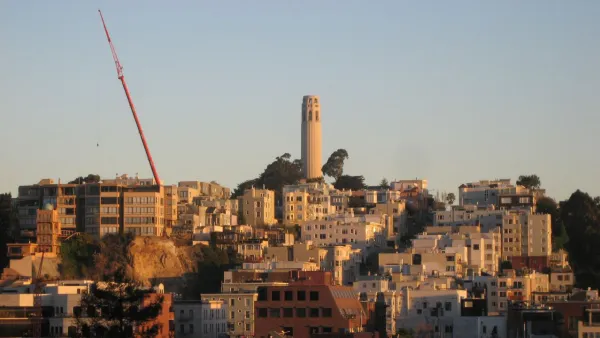'America 2013', a report released this week by the Urban Land Institute, presents the results of a nationwide survey on housing, transportation, and community preferences. Demographic trends indicate a continued demand for city living.
While some have expressed uncertainty about future trends in land use in the United States, if the current preferences of the Millennial Generation are a guide, compact development patterns are poised to lead the foreseeable future.
"A new report from the Urban Land Institute (ULI) underscores the influence that growing demographic groups in the U.S. – in particular Generation Y, African Americans, and Latinos – will have on reshaping urban growth patterns by spurring more development of compact, mixed-use communities with reliable, convenient transit service," writes Robert Krueger in a ULI press release announcing the findings of a recent nationwide survey.
"On the whole, the survey suggests that demand will continue to rise for infill residential development that is less car-dependent, while demand could wane for isolated development in outlying suburbs," he continues. "The survey found that among all respondents, 61 percent said they would prefer a smaller home with a shorter commute over a larger home with longer commute. Fifty-three want to live close to shopping; 52 percent would prefer to live in mixed-income housing and 51 percent prefer access to public transportation."
However, a post on The Wall Street Journal's "Developments" blog throws water on the study's findings. "Not everyone agrees with that theory," writes Kris Hudson. "Wendell Cox, a transportation consultant and demographer based in Belleville, Ill., says his analysis of census data shows that 76% of the growth in residents from 20 to 34 years of age from 2000 to 2010 came in low-density, often suburban counties."
Hudson also uses the opinions of two "random" Generation Y members to refute the report's findings.
FULL STORY: Where Americans Want To Live

Analysis: Cybertruck Fatality Rate Far Exceeds That of Ford Pinto
The Tesla Cybertruck was recalled seven times last year.

National Parks Layoffs Will Cause Communities to Lose Billions
Thousands of essential park workers were laid off this week, just before the busy spring break season.

Retro-silient?: America’s First “Eco-burb,” The Woodlands Turns 50
A master-planned community north of Houston offers lessons on green infrastructure and resilient design, but falls short of its founder’s lofty affordability and walkability goals.

Test News Post 1
This is a summary

Analysis: Cybertruck Fatality Rate Far Exceeds That of Ford Pinto
The Tesla Cybertruck was recalled seven times last year.

Test News Headline 46
Test for the image on the front page.
Urban Design for Planners 1: Software Tools
This six-course series explores essential urban design concepts using open source software and equips planners with the tools they need to participate fully in the urban design process.
Planning for Universal Design
Learn the tools for implementing Universal Design in planning regulations.
EMC Planning Group, Inc.
Planetizen
Planetizen
Mpact (formerly Rail~Volution)
Great Falls Development Authority, Inc.
HUDs Office of Policy Development and Research
NYU Wagner Graduate School of Public Service


























